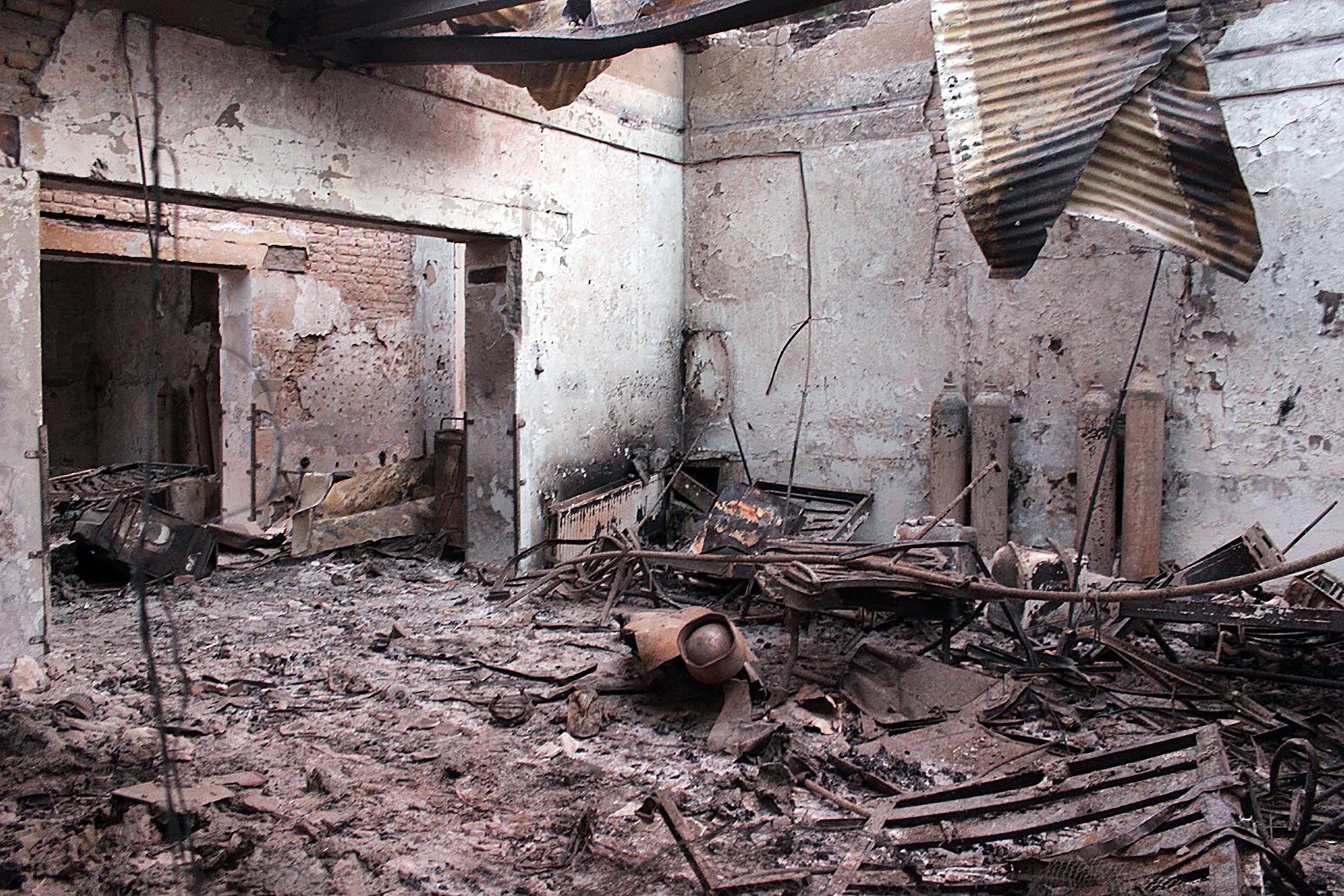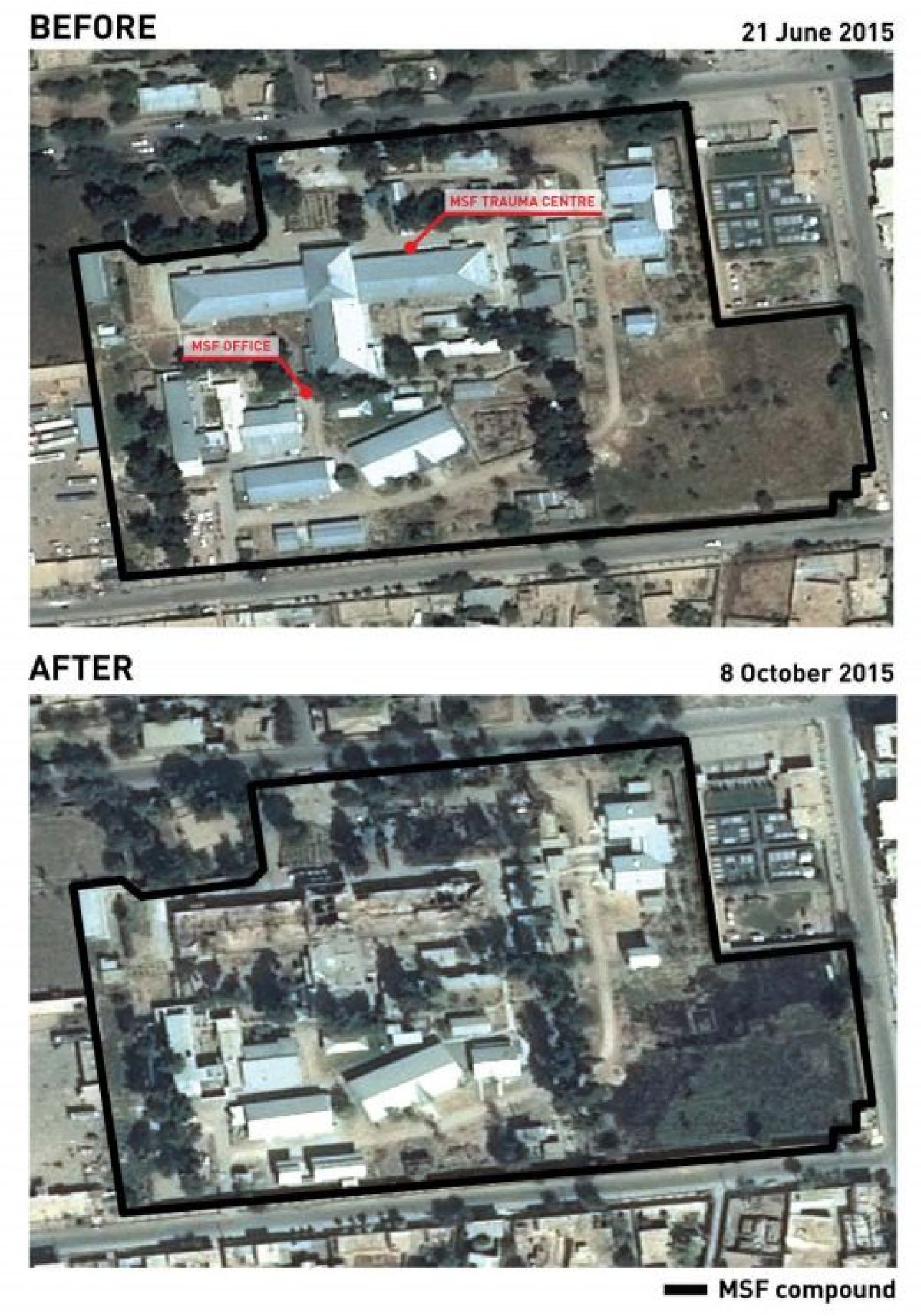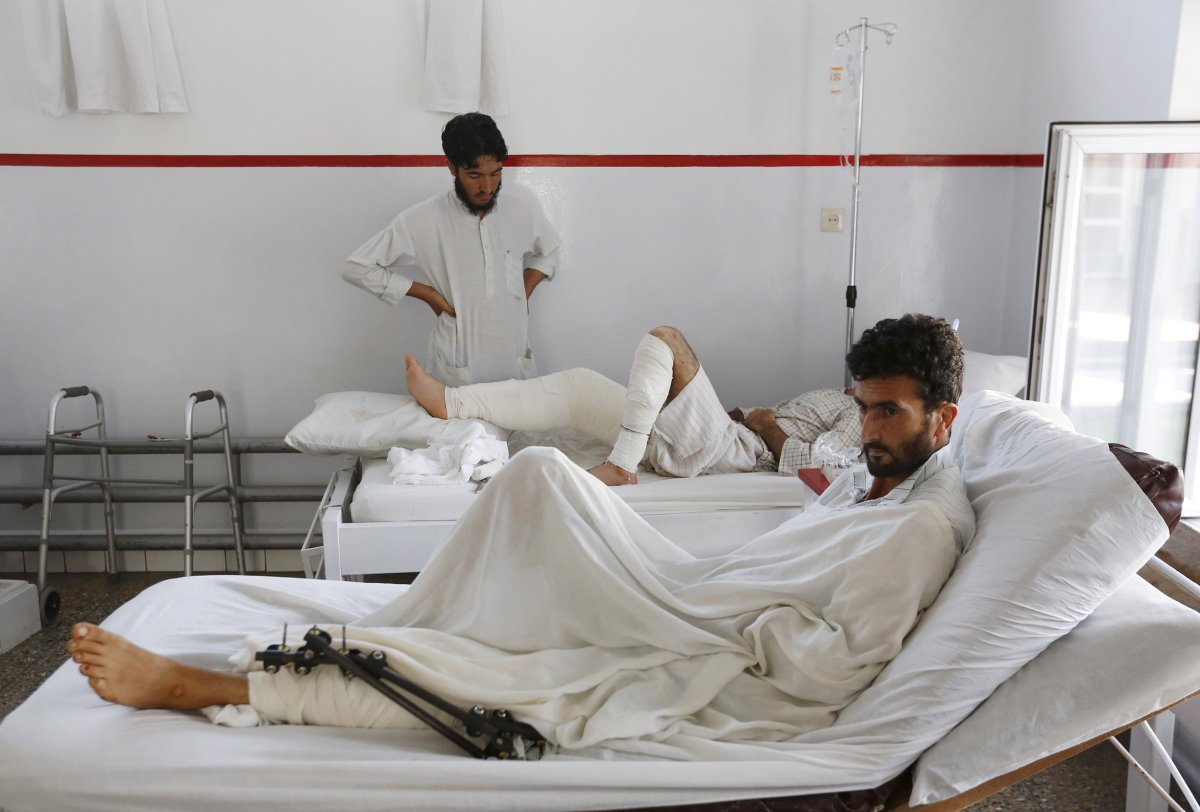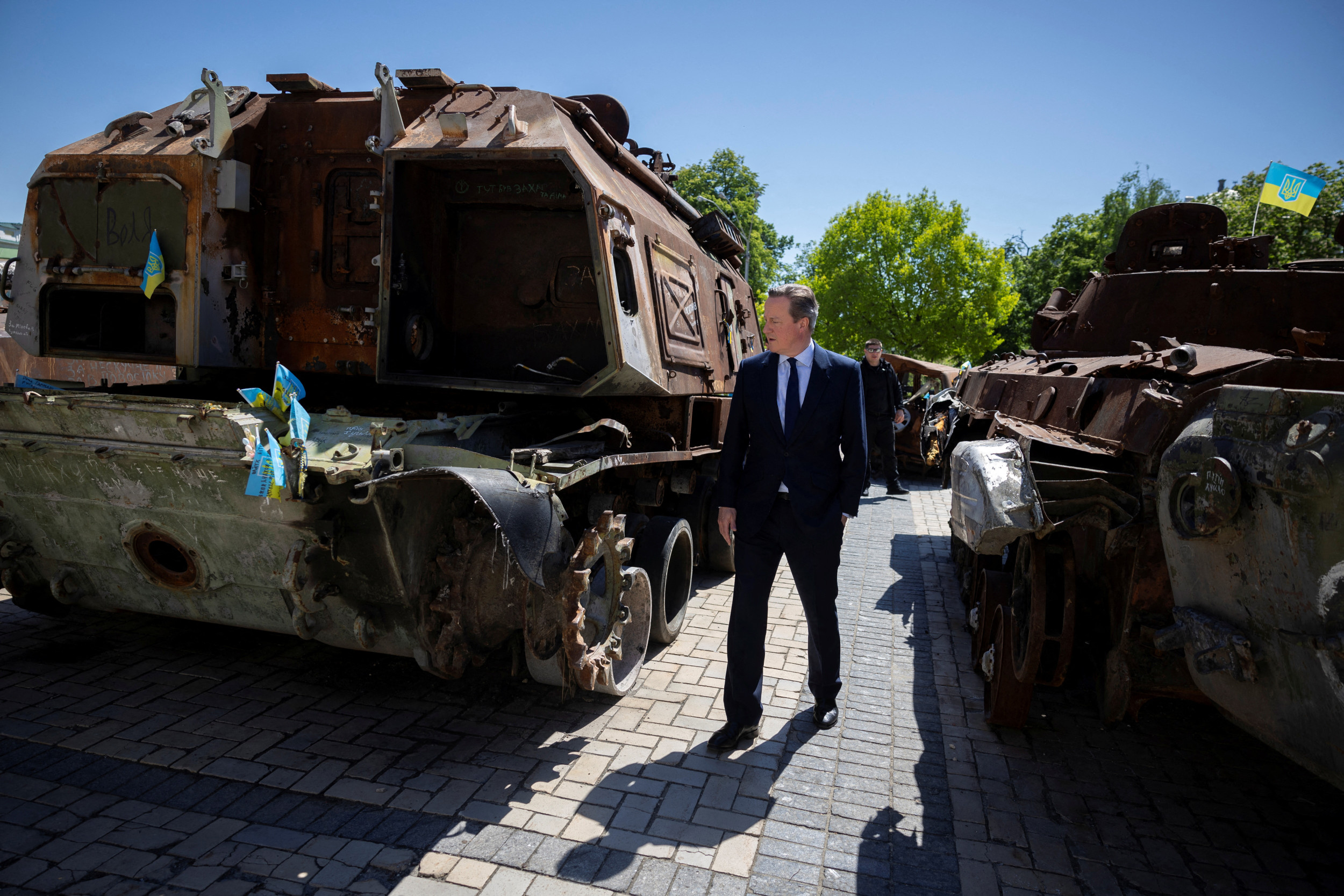
International medical organization Doctors Without Borders has released its initial review of an attack on its hospital in Kunduz, Afghanistan, describing in harrowing detail an hour of U.S. airstrikes on October 3 that killed more than 30 staff and patients.
"Patients were burned in their beds, medical staff were decapitated and lost limbs, and others were shot by the circling AC-130 gunship while fleeing the burning building," the organization said in the internal document, released on Thursday.
President Barack Obama issued an apology to Doctors Without Borders several days after the attack, and the military said "several innocent civilians were accidentally struck" by airstrikes. The Pentagon has also called the strike "a mistake."
Joanne Liu, the international president of Doctors Without Borders, said in the review: "What we know is that we were running a hospital treating patients, including wounded combatants from both sides—this was not a 'Taliban base.'"

The attack began between 2 a.m. and 2:08 a.m. on October 3, while the hospital was "busy and fully functional," and lasted for up to an hour and 15 minutes, said Doctors Without Borders. There were 105 patients in the hospital at the time of the airstrike, including 20 wounded Taliban and three or four wounded Afghan soldiers. The Intensive Care Unit in the hospital's trauma center was the first room to be hit, killing staff and immobile ICU patients, who were burned in their beds. Doctors and staff reported being shot at, possibly by the AC-130 plane, as they ran to safety, while another staff member was decapitated by shrapnel.
"A series of multiple, precise and sustained airstrikes targeted the main hospital building, leaving the rest of the buildings in the MSF compound comparatively untouched," the review said, using the French acronym for the group. "This specific building of the hospital correlates exactly with the GPS coordinates provided to the parties to the conflict (GPS coordinates were taken directly in front of the main hospital building that was hit in the airstrikes)."
"Not a single MSF staff member reported the presence of armed combatants or fighting in or from the hospital compound prior to or during the airstrikes," the organization said.
The report includes before-and-after aerial pictures of the hospital compound showing that the trauma center was completely destroyed while surrounding buildings were almost untouched—an indication of the precision of the airstrikes.
The report also includes a phone log with 18 entries recording frantic efforts by staff over the course of nearly one hour of airstrikes to contact U.S. and Afghan security forces by telephone and text messages to get them to stop the bombing.

In the days leading up to the airstrike, there were clashes between Afghan government forces and the Taliban. Doctors Without Borders said in the review that the hospital treated casualties from both sides. By Tuesday, the hospital was "inundated with patients," and the organization said it "reaffirmed the well-known location of the KTC [Kunduz Trauma Center] by once again emailing its GPS coordinates to the U.S. Department of Defense, Afghan Ministry of Interior and Defense and the U.S. army in Kabul." All three agencies confirmed the receipt of the coordinates, according to Doctors Without Borders.
A U.S. government official later asked Doctors Without Borders whether the Kunduz hospital or another of the organization's locations had significant numbers of Taliban militants "holed up" inside. The group responded by saying casualties included wounded Taliban combatants. On October 2, one day before the airstrike, hospital staff placed two Doctors Without Borders flags on the roof. No fighting was taking place, and no planes or gunshots were reported during the night before the airstrikes, said the organization. In addition, it said it strictly enforced a policy of banning weapons in the trauma center.
Four days after the airstrike on Kunduz, the organization called on the International Humanitarian Fact Finding Commission, an independent body, to undertake an independent investigation into the attack. Doctors Without Borders said the U.S. and Afghan government have not given their consent to be available for the investigation. The hospital remains closed.
The U.S. will conduct an independent investigation into what happened and will be "forthright and transparent" and "will hold ourselves accountable for any mistakes made," General John F. Campbell, the American commander in Afghanistan, said in a statement last month.
The Defense Department said on Thursday that its officials have received and read the review and a full investigation is taking place with the Afghan government to determine exactly what happened. "We're committed to conducting investigations that are thorough and transparent," the department said in a statement.
Uncommon Knowledge
Newsweek is committed to challenging conventional wisdom and finding connections in the search for common ground.
Newsweek is committed to challenging conventional wisdom and finding connections in the search for common ground.
About the writer
Before joining Newsweek, Lucy Westcott was an editorial fellow at The Wire. Previously a United Nations correspondent for the Inter ... Read more
To read how Newsweek uses AI as a newsroom tool, Click here.








